
 Hello, everyone. I have just returned from a brief visit to Vairocana Zen Monastery and my friend, Venerable Master Miao Tsan. Like each visit before it, this was an important step in my learning process, and like certain visits it was a bit emotional. I attribute that to the confluence of memory and the present moment, or a meeting of the past and the future. Now, you might say there is no past and no future; you'll say there is only the present. That is true, but one must identify the past and future--look at them directly, and call them by name--in order to dispel them from the consciousness. Such was the reminder I received during my visit. Each of us has a past, but from it our only present experience is karma. For example, you can pay tribute to one who has left the physical plane, but you can't contribute to one. It's impossible, like trying to force your own experience upon another. So, for me the process is part of an essential lesson. As Master says in all his writings, we must let go. We must set down our burdens and attachments. It can be difficult, even confounding, to do that. The principles of Zen, however, are explained in the context of what is not as opposed to what is. I think this method explains things better for me, because I can look at what I have--such as the present--and gain an understanding from that basis. Let me give you an example in the form of a story from a recent encounter I had. I was in the office of a physician, and he was explaining the benefits of natural sleep. This particular doctor, a very intelligent and receptive man, then asked about my morning routine. I told him that I try to begin each day, before work, with an hour of guitar practice. You see, I'm a writer but music is my main creative motivation. Even as one who deals in words, I compose them in much the same way I compose on the guitar. As a guitarist, I seek clarity of expression. I want the music to breathe, as if it's revealed as a living thing. Every note should have its own story. One activity is as difficult as the other, but in terms of the guitar I'm challenged by left-handedness in a right-handed world. My brain simply doesn't work the way a right-hander's brain does, so while my left hand is fast and delicate my right hand is less so. If I don't play for two or three days, my right wrist will fall into a deep sleep. This was always a frustration to me, until I learned otherwise from Master Miao Tsan. The doctor was pleased to know that I practice the guitar each morning, and he said music is one of the best activities for the right side of the brain. "It activates certain centers of the right brain, much the way that meditation does," he said. Now, while I did use the word "meditative" to describe the nature of my morning guitar practice, I certainly did not call it meditation. This is how I responded to the good doctor: "Yes, we can say it's meditative. Over the past couple of years I have completely redefined the primary aspects of my physical approach to the instrument, including my back posture and the positioning of my hands. I'd always played in a way that some call effortless, but actually that took a lot of effort because I'm left-handed but play right-handed. So, what I've learned from my Zen master is that in order to overcome a problem you must not embrace it. In other words, while I might have had difficulty in a certain technique--playing chromatically, for example--the answer is to 'not be me.' I have to 'not be' the one who has the problem. Nothing else changes: I still have two hands and ten fingers; I still have my creative ability and a mind that can receive all the ideas that exist beyond it. With that new awareness, I can easily play in ways that I would previously have ignored. As a result, I'm more relaxed and capable than ever." Wait a minute. I know what you're saying: "Do people really have these discussions with doctors?" Well, I did. Modestly, I even attempted to cut it short and change the subject. "I don't want to take up your precious time," I said. The doctor, though, interrupted with, "Please, I'm enjoying the conversation. After all, we're both musicians, so I understand just what you're saying." He then added, "It seems you're getting a great deal out of your work with the master. Please share our discussion with him, and then tell me what he says." I didn't need the validation but simply wanted to know how to sleep more soundly. I told him, "There are methods that advocate music or visual patterns for use in meditation, but Master has taught me something very important: Put me in an open environment with my guitar, and I'll make music to cry over. I'll go to places I've never been before. Then, take away the guitar . . . . Can I still get to those places? It will be difficult. So, meditation isn't music and music isn't meditation. To be my best as a person and an artist, I need to have calmness under every condition." It was at this point that I submitted my insurance card and prepared to leave the office. I promised to send the doctor one of Master's books, which I hope he'll read and share with others. Anyone who has a deep love of music can identify with the constant aspiration to be better. Usually, however, the right approach is to be a better person. The rest, as the saying goes, will come naturally. Thank you for reading. I hope we'll have more opportunities to talk about music, our dreams and the wonderful teachings of our friend, Venerable Master Miao Tsan. -- Lawrence Payne
Hello, everyone. I have just returned from a brief visit to Vairocana Zen Monastery and my friend, Venerable Master Miao Tsan. Like each visit before it, this was an important step in my learning process, and like certain visits it was a bit emotional. I attribute that to the confluence of memory and the present moment, or a meeting of the past and the future. Now, you might say there is no past and no future; you'll say there is only the present. That is true, but one must identify the past and future--look at them directly, and call them by name--in order to dispel them from the consciousness. Such was the reminder I received during my visit. Each of us has a past, but from it our only present experience is karma. For example, you can pay tribute to one who has left the physical plane, but you can't contribute to one. It's impossible, like trying to force your own experience upon another. So, for me the process is part of an essential lesson. As Master says in all his writings, we must let go. We must set down our burdens and attachments. It can be difficult, even confounding, to do that. The principles of Zen, however, are explained in the context of what is not as opposed to what is. I think this method explains things better for me, because I can look at what I have--such as the present--and gain an understanding from that basis. Let me give you an example in the form of a story from a recent encounter I had. I was in the office of a physician, and he was explaining the benefits of natural sleep. This particular doctor, a very intelligent and receptive man, then asked about my morning routine. I told him that I try to begin each day, before work, with an hour of guitar practice. You see, I'm a writer but music is my main creative motivation. Even as one who deals in words, I compose them in much the same way I compose on the guitar. As a guitarist, I seek clarity of expression. I want the music to breathe, as if it's revealed as a living thing. Every note should have its own story. One activity is as difficult as the other, but in terms of the guitar I'm challenged by left-handedness in a right-handed world. My brain simply doesn't work the way a right-hander's brain does, so while my left hand is fast and delicate my right hand is less so. If I don't play for two or three days, my right wrist will fall into a deep sleep. This was always a frustration to me, until I learned otherwise from Master Miao Tsan. The doctor was pleased to know that I practice the guitar each morning, and he said music is one of the best activities for the right side of the brain. "It activates certain centers of the right brain, much the way that meditation does," he said. Now, while I did use the word "meditative" to describe the nature of my morning guitar practice, I certainly did not call it meditation. This is how I responded to the good doctor: "Yes, we can say it's meditative. Over the past couple of years I have completely redefined the primary aspects of my physical approach to the instrument, including my back posture and the positioning of my hands. I'd always played in a way that some call effortless, but actually that took a lot of effort because I'm left-handed but play right-handed. So, what I've learned from my Zen master is that in order to overcome a problem you must not embrace it. In other words, while I might have had difficulty in a certain technique--playing chromatically, for example--the answer is to 'not be me.' I have to 'not be' the one who has the problem. Nothing else changes: I still have two hands and ten fingers; I still have my creative ability and a mind that can receive all the ideas that exist beyond it. With that new awareness, I can easily play in ways that I would previously have ignored. As a result, I'm more relaxed and capable than ever." Wait a minute. I know what you're saying: "Do people really have these discussions with doctors?" Well, I did. Modestly, I even attempted to cut it short and change the subject. "I don't want to take up your precious time," I said. The doctor, though, interrupted with, "Please, I'm enjoying the conversation. After all, we're both musicians, so I understand just what you're saying." He then added, "It seems you're getting a great deal out of your work with the master. Please share our discussion with him, and then tell me what he says." I didn't need the validation but simply wanted to know how to sleep more soundly. I told him, "There are methods that advocate music or visual patterns for use in meditation, but Master has taught me something very important: Put me in an open environment with my guitar, and I'll make music to cry over. I'll go to places I've never been before. Then, take away the guitar . . . . Can I still get to those places? It will be difficult. So, meditation isn't music and music isn't meditation. To be my best as a person and an artist, I need to have calmness under every condition." It was at this point that I submitted my insurance card and prepared to leave the office. I promised to send the doctor one of Master's books, which I hope he'll read and share with others. Anyone who has a deep love of music can identify with the constant aspiration to be better. Usually, however, the right approach is to be a better person. The rest, as the saying goes, will come naturally. Thank you for reading. I hope we'll have more opportunities to talk about music, our dreams and the wonderful teachings of our friend, Venerable Master Miao Tsan. -- Lawrence Payne




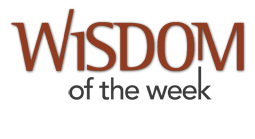
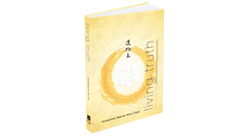
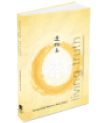
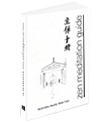
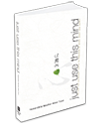
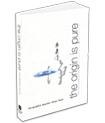
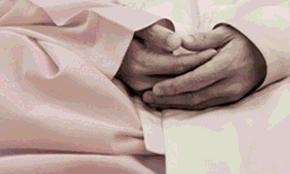


Comments (4)
Jen:
Sep 05, 2012 at 10:03 AM
What an amazing conversation to have with your doctor! I am glad that Master Miao Tsan has been able to help you with your frustrations and challenges of being a left-handed guitar player. I enjoyed reading your blog very much and hope there are more to come. Thanks for sharing your experience!
Lawrence Payne:
Sep 24, 2012 at 07:35 PM
Hi, and thanks for the compliment. There's so much to learn in the master's teachings, not simply from the intellectual standpoint but from the practical perspective too. When we consider music, work, college study or anything we do, there's great freedom to be found in doing our best. If we encounter a challenge or a problem, we can rise above it. It isn't necessary to repeat it. Thanks again. I hope you'll enjoy the conversation as it develops.
Ken:
Sep 16, 2012 at 06:06 PM
Thank you for sharing this experience. Music (to some people) is indeed spiritual. I know exactly what you mean about being transported to places while playing. I've never heard it expressed so perfectly before. You're a wonderfully gifted writer. Thank you!
Lawrence Payne:
Sep 24, 2012 at 07:47 PM
Ken, thanks for the comment. I'm glad there are people who identify with music's transcendental aspect, which is something I seek whenever I play. The guitar, in this sense, is not the music but merely a vehicle for my aspiration. I'll say more about this in the next entry, but in simple terms I try to experience the music of the mind without dictating to the mind. This approach has nurtured my ability to listen, and through Master's teaching I've replaced the urgency and yearning of my inner artist with something simple but powerful: the joy of listening. I can appreciate the music with greater ease and fullness, even as it flows from my instrument. So, in a way I've experienced peace as I've never known it before. I'm very grateful for that. Thanks again. I hope you'll find time to learn from Master Miao Tsan.
Add a Comment